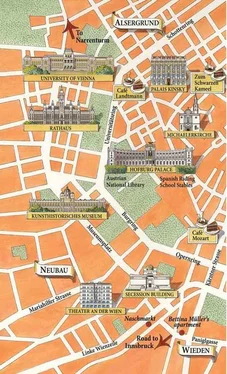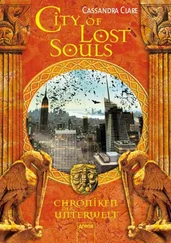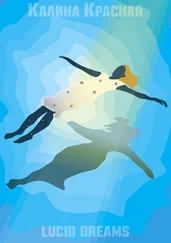She heard voices, saw figures moving above her. She moved up the steps until she was standing in the central room.
A little girl in a red cape. Elizabeth standing next to her, wearing a black cloak like the one she wore now, looking like a child herself. The room was crowded with other figures, but they were dim compared to the hot intensity of Elizabeth’s energy. The girl began coughing. Elizabeth held her tight, and the girl coughed up a spot of blood that Elizabeth wiped away with an already bloodstained handkerchief. She gave her a sip of the hot wine.
“Where is Pollina?” shouted Sarah down the steps.
“Do you see her? Do you see Portia?”
“I see her. Where is Pollina?”
* * *
In the past, Elizabeth put her hand against Portia’s forehead. “Oh, my child,” she said. “We must get you home.”
* * *
“You’re going to leave,” said Sarah. “You’re going to walk away. Tell me where Pollina is.”
“No!” said Elizabeth. “We mustn’t leave. This is the day, the day it happens. Walpurgis. The only day we were here, in the Star Summer Palace. I could feel the energy; I thought it would help her. I had tried prayer. I had tried medicines. In my desperation I was ready to try magic. I remember this. I remember the pull. I remember I was afraid. Start coming back down the stairs. She will feel your energy. She will follow it.”
Sarah heard it in her voice. The sound of someone who would do anything to save the one she loved. She knew that sound. It was in her, too. She came partway down the stairs, but she could still see Elizabeth and Portia above her.
* * *
In the seventeenth century, Elizabeth was straightening Portia’s cape, pulling up her hood. “We must go,” Elizabeth said to Portia.
“Please,” said Portia. “Just a little longer, Mama?”
* * *
“Where is Pollina?” Sarah snapped over her shoulder.
“She’s here.” Elizabeth’s voice was cracking with emotion. “On the top floor. She’s not hurt. I wouldn’t hurt her. I couldn’t. She’s so much like Portia. Please. Please help me. I know you hate me. I’ve done terrible things, but only to help a sick little girl.”
“In the name of love? You’ve perverted the whole concept.”
“Maybe. But don’t you see what he did to me? I was a child just like Pollina. He ruined me. And I’ve been alone for so long. The alchemists wanted knowledge. They wanted power. All I want is to have my child back. Please, please, help me bring Portia here. Let us be together. I didn’t choose this, Sarah. Please.”
“How do I do it?” asked Sarah. “The staircase is still covered up in her time. I can’t drag her through the floor.”
“She will come,” Elizabeth whispered. “She must. I will help.”
Elizabeth pressed a foot pedal on the armonica and the bowls began to spin on their treadle. Sarah thought of the woodcuts she’d seen in old alchemical books, of a musician playing near a hell portal. Music, of course. Music was the language that traversed time.
Elizabeth struck a note.
* * *
In the seventeenth century, Portia suddenly grew very still. Sarah saw the little girl’s white face turn even whiter.
“Do you hear that, Mama?”
* * *
Elizabeth played a series of notes. Not a melody but a kind of calling. Summoning. Luring. Seducing.
* * *
“Music,” said Portia. “It’s pretty.”
“It’s the spirits,” Elizabeth whispered. “But are they angels or demons?”
* * *
“It’s working,” said Sarah. “They can hear you.”
“Yes. I remember. I will try to stop us. Don’t let me.”
* * *
In the seventeenth century, Elizabeth knelt and pressed her hand against what was, in her time, the floor. Her hand was only a foot above Sarah’s face. Sarah could see the veins in Elizabeth’s hand.
“Music below,” Elizabeth said. “I can feel it.”
“I want to try,” said Portia. If the little girl put her hand down, too, Sarah thought, she could reach up and grab it.
Portia began to lean down, reaching toward the floor. Sarah reached up, but Elizabeth caught the girl’s hand, pulled it away, and kissed it. “This is a bad place,” said Elizabeth. She shivered. “Things happen here. Evil things.”
* * *
“You won’t let her come close,” said Sarah. “You’re afraid. She’s right here.” Sarah reached up her hand again, but she couldn’t quite touch the little girl.
Elizabeth abandoned the armonica and raced up the stairs, holding out her hand to her daughter, and in that moment seventeenth-century Elizabeth did the same, beckoning her daughter to leave. The girl stood in the middle, two versions of her mother on either side of her, holding out their hands to her. Portia hesitated. Sarah held her breath. The little girl was looking at her, as if she could see her at last.
* * *
“But it will change things,” said Max, below them. “It will change everything.”
* * *
Just above them, Sarah saw Elizabeth draw her daughter close.
“You must come with me,” said the woman, holding her daughter. “We must stay together.”
* * *
Next to Sarah, Elizabeth was breathing rapidly.
“I remember,” she said. “I remember. But we can change the past.”
* * *
But the Elizabeth of the past was leading her daughter away.
* * *
“Open the portal!” Elizabeth screamed, shoving Sarah down the steps. “She will come back. She will feel it.”
Sarah landed hard on the floor. The key lurched forward and she grabbed it.
“No.” Sarah’s head was spinning. “No. She’s never going to come through. Because you are never going to let her go. You know this.”
“We can change the past!”
“No,” said Sarah. “Only the future.” She reached to still the key. “It won’t do any good to open the portal. She won’t come.”
* * *
“No!” With a yell, Harriet threw herself at Sarah, grabbed at the key, and scrambled toward the portal. The chain held fast, and Sarah was dragged by her neck. They struggled together on the floor, Harriet screaming as the key burned the flesh of her hand. The magnetic pull of the key met the force of the door, and with a wrench it flew upward. Sarah closed her eyes against the brilliant flash of light. And then nothing. No scent, no sound, no light. Nothing but the pull of the portal. Sarah could feel herself sliding toward it, and then Max’s hands on her shoulders, pulling her back. Harriet let go of the key around Sarah’s neck.
And disappeared.
The portal door flew shut with a thunderous crack.
Light and smell and sound returned. An awful sound.
Sarah looked over to where Elizabeth was on her knees at the stairs, weeping. It was pitiful, heart wrenching.
“So close,” she sobbed. “So close. Maybe. Maybe we can try again.”
“No,” said Nico. “Sarah is right. In the past you will never let your daughter go. This was all madness. This was a dream.”
“Max,” said Sarah. “Pols is here. Upstairs somewhere.”
Max leapt over Elizabeth and sprinted up the stairs. Sarah, who found she could barely stand, half crawled to the crying woman.
“Bettina, Elizabeth, whatever your name is,” said Sarah, “you’ve got to help Pols.”
“I can’t.” She looked up at Sarah through her tears. “The drugs she’s already on should have worked. There’s something else. Something I can’t see. I wanted to help; I did. I looked at everything. But I can’t help her. I’m sorry.”
Читать дальше












